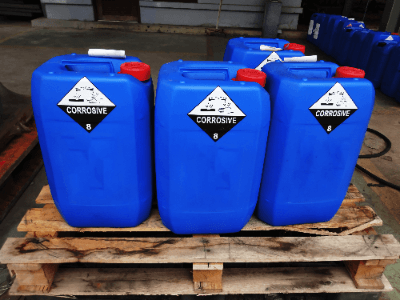What Is a Chemical Tank?

A chemical tank is a container used for storing chemicals.
A container is necessary to store chemicals, but since liquids are more reactive than solids, any gaps will cause leakage. Therefore, it is necessary to use a dedicated tank for chemical storage. Furthermore, each chemical reacts differently with different materials, so no one chemical tank can be used for all chemicals in common.
The following is an explanation of the types of chemical tanks, their uses, and in what cases they are suitable.
Uses of Chemical Tanks
Chemicals are stored in special storage in laboratories, etc. Chemicals such as ethanol, which are often used for cleaning and have little effect on the human body, are kept in small chemical bottles for ease of use. However, in the case of chemical production plants and transportation, large chemical tanks are required to store large quantities of chemicals, and high strength is required to prevent leakage due to breakdown.
In addition to storing chemicals, factories also mix chemicals. At the laboratory level, chemical tanks are used not only to store chemicals but also to dispose of waste liquids.
Principle of Chemical Tanks
Chemicals are broadly classified into acids, alkalis, and organic solvents. Metallic chemical tanks are strong and resistant to damage, but they are weak against acids and are not suitable for storing hydrochloric acid, for example. Organic solvents are highly resistant, but acidic liquids, such as acetic acid, corrode organic solvents.
Glass can be used in many cases, but it is weak against alkalis and dissolves in hydrofluoric acid, so it is used except for alkalis and hydrofluoric acid. However, it is not a preferred material because it is damaged easily.
Polyethylene, which is inexpensive and has excellent chemical resistance and impact resistance, is the most commonly used material. Since polyethylene can be used for a wide range of applications from acids, alkalis, organic solvents, and fluorine, large-capacity chemical tanks are constructed and often used in a wide range of industries from food to chemical plants. However, they are not universal, as they are not resistant to acetone and other chemicals.
A material that shows universal chemical resistance is fluoroplastic, or Teflon, but it is expensive and soft, so it is not suitable as a material for large chemical tanks.
Thus, chemical tanks are made using different materials depending on the properties and storage volume of the chemical.